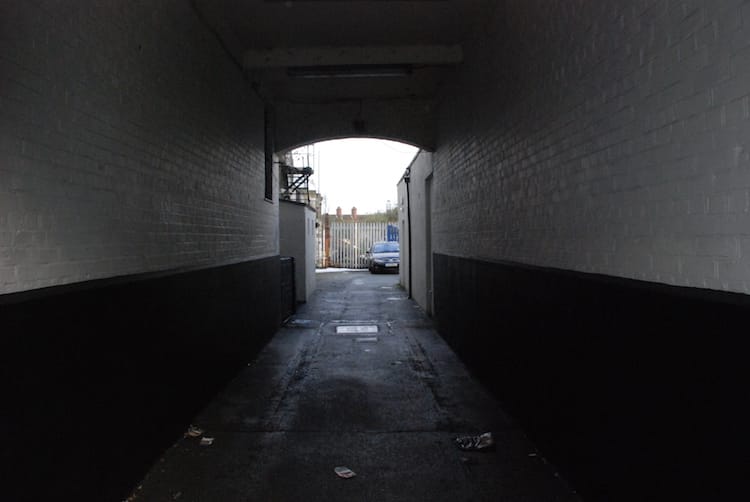What’s the best way to tell area residents about plans for a new asylum shelter nearby?
The government should tell communities directly about plans for new asylum shelters, some activists and politicians say.
They’ve tended to the plot not far from Thomas Street for nearly four years, and don’t know why they’re not allowed in, they said.

The NCAD community garden off Thomas Street, locked up shortly before Christmas, has yet to reopen.
Local Amanda McKnight, along with several volunteers, helped tend this plot, growing vegetables and harvesting compost there for community use over the past four years.
For her, this lockout reinforces what she perceives as the prevailing attitude towards such spaces: that they are temporary and should remain so; that better uses exist for them than community gardens.
With the National College of Art and Design (NCAD) lockout “a great local amenity is lost”, says Robert Moss, the Green Communities Manager at An Taisce.
Despite repeated attempts to contact college authorities, NCAD didn’t respond to queries about the lockout before this was published.
Sat between Thomas Street and Oliver Bond Street in the Liberties, the NCAD garden used to be a dumping ground, says McKnight.
But then “guerrilla composter” Tony Lowth, with help from volunteers, turned it into a community garden.
For nearly four years, Lowth’s team worked this small patch of land, growing herbs and vegetables and creating compost from local waste.
But the NCAD plot, owned by the college, provided McKnight and others with a sense of community, she says. It brought together people from all walks of life, improved their well-being, and modelled an alternative for inner-city waste-management.

Then, in December, NCAD’s facilities manager locked them out.
As McKnight sees it, there’s a “secret garden culture” when it comes to community gardens in Dublin. “They seem to only serve a purpose until somebody comes up with a better idea,” she says.
McKnight has launched a petition asking NCAD to “unchain our garden”, which had 351 signatures as of Tuesday evening.
She said she hopes this petition helps to raise awareness about the importance of community gardens like NCAD’s, particularly in inner-city areas.
Moss, the green communities manager at An Taisce, helps out at the Bridgefoot Street community garden, not far from the one at NCAD.
Back in November, gardeners on Bridgefoot Street raised concerns about the future of their plot, which is on a disused site that’s set to become a public park.
Although plans for the park include their garden, they were alarmed when they got an eviction notice without any accompanying reassurance about being able to move back in once works are completed.
The gardeners’ concerns about the future of their plot remain, says Moss. There is an attitude that these spaces are transient, that their redevelopment is an inevitability, he says.
“But when you have so many people living without a garden of their own in the city … you have to provide an alternative, in the form of community gardens,” he says.
Measures should be put in place to ensure these spaces aren’t closed down, even temporarily, to ensure their long-term sustainability.
It took three years, Moss says, to gather the volunteers at Bridgefoot Street and to build a community there. Even if closed community gardens reopen after a time, the volunteers may have dispersed, wandered off.
“So when you close down these gardens, there are consequences,” says Moss. “It’s not just the plants in the garden anymore, it’s the community you’re losing, the act of cultivation.”
Despite repeated phone calls and several emails since last Thursday, NCAD did not respond to queries about the closure of the community garden.
McKnight says there are large amounts of compost still on-site, as well as vegetables growing there, including potatoes and greens.
She hopes to hear from NCAD soon because, she says, “often people never hear why these spaces have closed and so it gets pushed under the rug”.
[UPDATE: This article was updated on Wednesday at 13.50pm as it misquoted Amanda McKnight in relation to the possible redevelopment of the site. Apologies.]